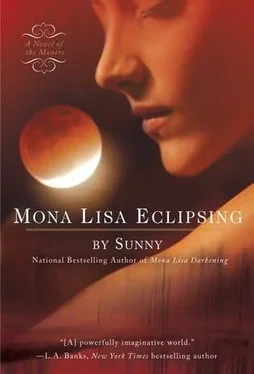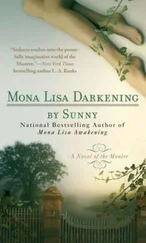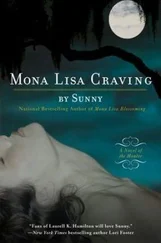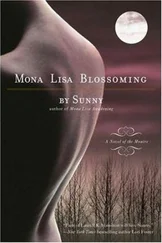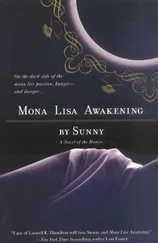“Congratulations,” I said to McManus, handing him the bundle of cash Dontaine had counted out, “you made it before any reporters did.”
The bristly-browed attorney counted the money and passed me a large yellow envelope. “Your receipt is in there, along with all your messages and emails. You’re expecting reporters?”
“We’ve been sitting here for fifteen minutes. What do you think?”
“You planning on talking to them?” McManus asked.
“You betcha.”
“Do you want me to stick around?” he asked.
“At four hundred dollars an hour? No thanks, although you’re more than welcome to stay on your own time. I have your cell phone number. If we need your services again, we’ll call you, but likely as not, we won’t. If the police try and take us into custody, we’ll just go.”
His brows slanted down. “You mean do that speed-away thing?”
“Yeah, and you won’t ever hear from us again.”
“Just me or the whole world?” he asked.
“Both.”
“Moment of truth, huh?”
My heart gave a little thump. I hadn’t realized it until he put it so clearly, but yeah, that’s what this would be. “My terms were pretty clear. The government’s had a whole day to decide what they’re going to do.”
“Cops are going to be coming here soon.”
“I know.”
“Then I hope, for everyone’s sake, no one overreacts.”
“Me, too.”
The first reporters sped into the parking lot, with more news vans following right behind them. Mall security had flocked out, and local police screeched in with the FBI right on their heels—one big ’ole party. All new faces, I noted. Last but not least, a couple of carloads of men and women wearing Homeland Security Windbreakers poured out and quickly organized the milling law enforcement personnel to have them push the crowd back farther away from us. So far none of the officers or agents had made a move on us or drawn their weapons. McManus, I saw, had decided to stay and was talking to a couple of reporters himself.
Quentin and I sat across from each other, close to the velvet ropes, which so far none of the reporters interviewing us had attempted to cross. More media flocked in front of the other two tables. Most were from local stations, but there were several national networks represented: CNN and MSNBC, even BBC World News, broadcasting live, it seemed.
“Mona Lisa!” a male reporter called out. The use of my Monère name caught my attention, had me turning to him. “Why do your people call you Mona Lisa?”
I explained, as I had done earlier to Kelly, that Mona was a title added before the first name of a Queen. “The word Mona means of moonlight . Why Monère sometimes refer to Queens as Ladies of Light.”
“What other gifts do your people have besides shape-shifting?” asked another reporter.
“We’re much stronger than the average person.”
“How much stronger? Able to lift a car?” someone asked.
“I’ve never tried it,” I said, “but probably yes.”
“Can you demonstrate your strength for us?” the same voice asked.
“I’ll be happy to, if you have something you don’t mind being destroyed, like a rock.”
Someone quickly ran off to search for a rock. Another resourceful cameraman handed me a small metal flashlight, the size of my palm. “How about this?” he asked.
“Do you mind if I crush it?”
“Sure, go ahead, if you can.”
I took him at his word, closing my fingers around the handle. When I released it, the metal under my hand had been mangled and squeezed down, showing the crushed batteries inside. The cameraman took back his flashlight with an astonished expression. My demonstration grabbed the attention of not just the reporters around my table but also garnered the intense interest of some of the watching law enforcement standing several yards away.
Someone ran back with a big rock about twice the size of my palm. “Is this okay?” the man asked, obviously one of the news crew.
“Sure,” I said. “You can help me demonstrate, if you don’t mind.”
He nodded eagerly.
“Go ahead and squeeze the rock. Try to break it with both hands.”
He clutched and strained, squeezing the rock. It didn’t break. He passed it to me under the bright lights of the filming cameras. Taking it in my left hand, I closed my fingers and squeezed with gentle pressure. Dust and small bits of rock crumbled out from where I held it. “I could have crushed it completely, but I wanted to leave something behind, so that you could see that the rock is real and as hard as it looks.” I gave the rock back, with the impression of my fingers nicely grooved a good inch down into the stone.
“Are you a lefty or a righty?” a reporter asked.
“I’m right-handed.” And I had used my left hand.
“What other gifts or abilities do you have?” asked a female reporter.
Another moment of truth. “I am also able to compel people with my gaze.”
“Compel? What do you mean by that?”
I was suddenly very conscious of all the filming cameras. All the people possibly watching right now around the world, and how frightening this next thing might seem to them. How easily it could all blow up in our faces. But it had to be disclosed now, before we met with any policy makers.
Course decided, I took a breath. “Compelling someone means that I am able to control someone’s actions for several minutes, take over their will.”
A second of profound silence. Then the female reporter asked, “Can you show us?”
“If you have any volunteers, I can demonstrate. We can also test at what range and limit of distance my ability works.”
“I’m willing to be your guinea pig,” she offered, “as long as I hear first what you’re going to make me do.” Brave lady. Because after this, she was certain to be grilled and examined by the FBI and Homeland Security, and who knows what other agencies.
“How about if I tell you to squawk like a chicken, flap your arms, and hop on your left leg?”
“Okay,” she said, laughing nervously. “I don’t mind doing that.”
“Let’s start at a distance of about three feet away,” I suggested.
Handing her mike to another reporter, she backed up about a yard. “What do I need to do?”
“Just look at me and try not to do what I tell you to do.”
I captured her gaze with a small thrum of power that drew the attention of the other Monère around me. Their eyes all turned to me, as did all the reporters talking to them.
“What is your name?” I asked.
“Maria Camille Ortega, from NBC4 Washington.”
“Maria,” I said, raising my voice so everyone could hear me clearly. “I want you to squawk like a chicken, flap your arms, and hop up and down on your left leg.”
She started squawking, flapping her arms, and hopping.
“Stop,” I told her.
Maria froze, hands under her armpits, standing on one foot like a flamingo.
I released her from the compulsion. Watched her come back into awareness.
“Did she just make me squawk like a chicken?” she asked her cameraman.
He nodded.
“Oh my God, I really did?” She didn’t look like she believed him.
“Did my eyes change?” I asked loudly.
“Yes,” said one of the reporters who had had an up-close viewing of everything. “They lightened in color and grew kind of sparkly.”
A policeman stepped forward, a black middle-aged man with a tough, no-nonsense face. “I want you to try that on me.”
“Have you ever yodeled, Officer?” I asked.
“Never.”
“Good, then we will see if I can make you yodel. But first I ask that you hand your gun to one of your fellow officers, so they won’t get too nervous.”
Читать дальше
